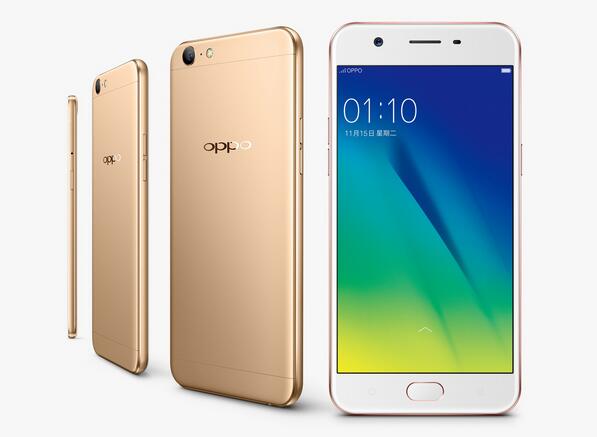Oppo tops Chinese market in 2016, overtakes Huawei
- By Guo Yiming
 0 Comment(s)
0 Comment(s) Print
Print E-mail China.org.cn, February 8, 2017
E-mail China.org.cn, February 8, 2017
 |
|
China's smartphone vendor Oppo has snatched China's smartphone sales crown in 2016. |
China's smartphone vendor Oppo has snatched China's smartphone sales crown in 2016, overtaking heavyweight Huawei and other massive names, according to a latest IDC report on Feb. 6.
Against an overall beaming Y-o-Y growth of 8.7 percent, the country's smartphone market reshuffles with Oppo leading in terms of both shipment and market share, posted 122.2 percent growth last year.
The obscure company shipped 78.4 million smartphones in 2016 and took up 16.8 percent of the market share, fractionally beating out Huawei and its sister company Vivo.
Apple and Xiaomi, two smartphone juggernauts, rounded out the top five, but with a Y-o-Y decline of 23.2 percent and 36 percent, respectively.
Proportionally, Oppo, Huawei and Vivo occupied almost half of China's smartphone market, while US-based Apple posted its first annual decline, accounting less than 10% of the market share, and Xiaomi, which grabbed the top spot in 2014 and 2015, only secured 8.9%.
Observers say customers are not only demanding cost-performance in their handsets but also fashionable smart devices that can meet their daily use needs and represent their personal taste and social position.
The rise of "OV" model
Oppo and Vivo, both owned by Guangzhou-based BBK, have steadily developed a strong presence in China and in markets like India and Southeast Asia.
Amid a big online craze endorsed by other local brands like Xiaomi to create an e-commerce footprint, Oppo and Vivo have chosen the alternative path of adopting aggressive advertising campaigns and offline sales channels to reach prospective customers in third or four-tier cities, revealed Chen Mingyong, CEO of Oppo.
In late 2014, Oppo owned 140,000 retail outlets, and the number had grown to 200,000 by the end of 2015. Its sister brand Vivo also boasted a staggering number of 250,000 offline stores and 430 after-sale service centers by the end of 2016.
Other competitors want to follow suit. Huawei said it expected to cover its offline stores to nearly 20,000 Chinese counties in 2017; Xiaomi said it will beef up its offline sales channel and has opened five authorized stores in the first half month this year; ZTE even publicly endorsed the "OV" model and has committed its main efforts to establishing outlets in 2016.
Moreover, the OV model puts more emphasis on advertising campaigns targeted on young customers, roping in famous stars like Li Yifeng, Yang Mi and Soong Joong-ki as its brand ambassadors.
A premium on the supply chain
After the reshuffle in market share in 2016, the competition among smartphone vendors could be even stiffer. The top three have already set their shipment goals for the new year, with Oppo and Vivo targeting 160 million and 150 million, and Huawei targeting 170 million, revealed Kevin Wang of IHS Markit, a research firm.
And companies on their supply chain would be the beneficiaries. In the first three quarters of last year, O-film, a mobile electronics component provider, registered a business income of 19 billion yuan, up by 43.22% Y-o-Y, which is attributable to its expansions in camera modules and fingerprint ID module production as well as impressive shipment records of customers like Oppo, Huawei and Vivo.
Good supplier resources are more and more concentrated in a handful of companies as major smartphone vendors have already seized their own reliable suppliers with reasonable prices and big quantities, said Wang.
With inflation, the higher prices of raw materials and a stronger greenback, small cellphone producers will be locked in an ever-difficult game, he added.






Go to Forum >>0 Comment(s)